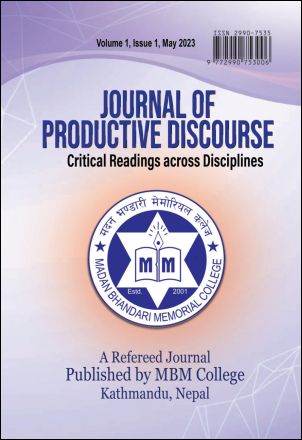Habituality, Perfectivity and Ergativity in Nepali
Keywords:
Aspect, Agent, Perfectivity, Event Structure, Split-ErgativityAbstract
This paper argues that in Nepali, the position of aspect heads leads to the ergative case assignment on agents of perfective clauses and optional marking on the agents in habitual sentences. Along with split ergativity, Nepali exhibits ergative marking also for stage vs. individual level readings of the subjects in habitual sentences. A marked subject has an individual level reading and an unmarked subject has a stage level reading. In the context of the data presented in the paper, it is argued that the case marking on the agent is an inherent case, assigned to the agent in its theta position. Furthermore, such inherent case assignment or the environment in which the agent is marked, is motivated and conditioned by the aspect of the clause, represented through various aspect heads in narrow syntax.
Downloads
Downloads
Published
How to Cite
Issue
Section
License
Copyright (c) 2023 Raj Laxmi Singh

This work is licensed under a Creative Commons Attribution-NonCommercial 4.0 International License.
This license allows reusers to distribute, remix, adapt, and build upon the material in any medium or format for noncommercial purposes only, and only so long as attribution is given to the creator.




